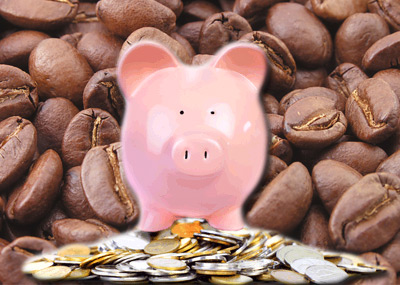For millions of Americans, one of the first things they do in their mornings is reach for a cup of coffee. While it’s common knowledge that coffee can provide you a jump-start to your energy levels, this deliciously common beverage can do so much more. If you’re interested in learning exactly what coffee does to your body and brain, and what benefits you can expect after drinking one of America’s favorite beverages, continue reading.
#1 – Boosts Athletic Performance
While coffee will never be as strong as other performance-enhancing drugs, study after study has found that caffeine can significantly enhance your overall athletic performance. Because of this, many pre-workout supplements heavily rely on caffeine to boost your overall performance. When you consume caffeine, your muscles experience a unique metabolic effect, which works to enhance your endurance levels. Biologically speaking, when you consume caffeine your muscles are able to better burn fat as an energy source. Instead of calling upon carbohydrates to boost athletic performance, your overall endurance is increased. However, more doesn’t necessarily mean better. If you consume too much caffeine, your athletic endurance will actually decrease.
#2 – Increased Mental Focus
Whether you’re at work or at school, there’s always a need to increase your overall focus and concentration. Numerous studies have found that consuming coffee (caffeine) significantly increases your overall levels of focus and concentration by stimulating your central nervous system and supporting neurotransmitter activity. As with athletic performance, caffeine intake determines its effectiveness. Take too much caffeine and your focus will dwindle.
#3 – Less Really Is More
With the advent of energy drinks, which are loaded with caffeine and other stimulants, many people feel that the more caffeine they consume, the sharper they’ll be. However, this is far from the truth. In biological terms, when you add too much caffeine to your body, the cells will stop working as they should within a stimulated state as they become numb to its effects. This is commonly referred to as cellular attenuation. The biggest thing to remember is only drink coffee when you actually NEED a boost in energy and focus.
#4 – It’s Not Addictive
So many people think that caffeine and coffee are addictive substances. Although when you quit drinking caffeine, you’ll typically experience a short-term moderate headache. However, this does not mean you’re going through serious withdrawals. Unlike what you may believe, you can’t become physically addicted to coffee; however, you can become habitually addicted, which means you simply crave the habit of drinking coffee, not the actual substance.

 I think one reason I like my morning cup of coffee is that it brings me a feeling of stability. There’s something about a reliable morning routine that comforts me and helps me look forward to the day. Don’t get me wrong, I also love my afternoon coffee and the occasional cup in the evening as well, but there is something comforting about your morning cup of caffeinated goodness. I guess you could say I am a little bit of an addict (but when else would I own this blog?).
I think one reason I like my morning cup of coffee is that it brings me a feeling of stability. There’s something about a reliable morning routine that comforts me and helps me look forward to the day. Don’t get me wrong, I also love my afternoon coffee and the occasional cup in the evening as well, but there is something comforting about your morning cup of caffeinated goodness. I guess you could say I am a little bit of an addict (but when else would I own this blog?).

